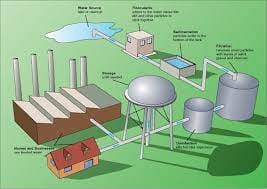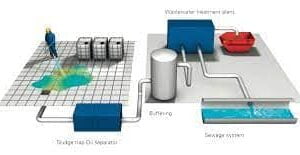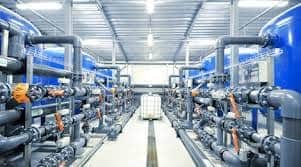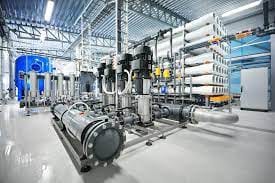Water Treatment Plant in Sharjah
Buy on whatsappDescription
Water is a vital resource for all living beings, and ensuring its cleanliness and safety is of utmost importance. In Sharjah, a bustling city in the United Arab Emirates, a modern and efficient water treatment plant plays a crucial role in providing clean and safe water to its residents. This article explores the significance of the water treatment plant in Sharjah and the processes involved in water purification, filtration, and wastewater treatment.
Importance of Water Treatment Plant in Sharjah
1. Ensuring Clean Water Supply
A water treatment plant in Sharjah is responsible for treating raw water from various sources, such as rivers, reservoirs, or underground aquifers. Through a series of advanced treatment processes, contaminants and impurities are removed, resulting in clean and safe water suitable for consumption. This ensures that the residents of Sharjah have access to high-quality drinking water.
2. Safeguarding Public Health
By effectively treating water, the water treatment plant in Sharjah plays a vital role in safeguarding public health. Waterborne diseases and infections can be prevented by eliminating harmful bacteria, viruses, and other pathogens present in the source water. The treatment processes implemented in the plant adhere to strict standards and guidelines, ensuring the water meets regulatory requirements.
3. Water Purification Process
The water treatment plant in Sharjah employs various purification processes to remove impurities from the raw water. These processes typically include coagulation, flocculation, sedimentation, and disinfection. Coagulation involves adding chemicals that bind with suspended particles, while flocculation encourages the formation of larger particles that can be easily removed. Sedimentation allows the settling of these particles, and disinfection eliminates any remaining microorganisms.
4. Water Filtration Methods
Filtration is a key step in the water treatment process. In Sharjah’s treatment plant, different filtration methods may be used, such as sand filtration, activated carbon filtration, or membrane filtration. Sand filtration effectively removes larger particles, while activated carbon filtration adsorbs organic compounds, taste, and odor-causing substances. Membrane filtration employs semi-permeable membranes to separate impurities from the water.
5. Wastewater Treatment and Reuse
Apart from providing clean drinking water, the water treatment plant in Sharjah also plays a crucial role in treating wastewater. Wastewater from households, industries, and commercial establishments undergoes a rigorous treatment process to remove contaminants before it can be safely discharged or reused. Advanced technologies like biological treatment, chemical processes, and disinfection are employed to ensure the wastewater meets quality standards.
Conclusion
The water treatment plant in Sharjah is an essential infrastructure for maintaining a sustainable supply of clean and safe water. Through the implementation of various purification and filtration processes, as well as effective wastewater treatment methods, the plant ensures that residents have access to high-quality water while protecting public health. The commitment to maintaining a reliable water supply contributes to the overall well-being and development of the city.





